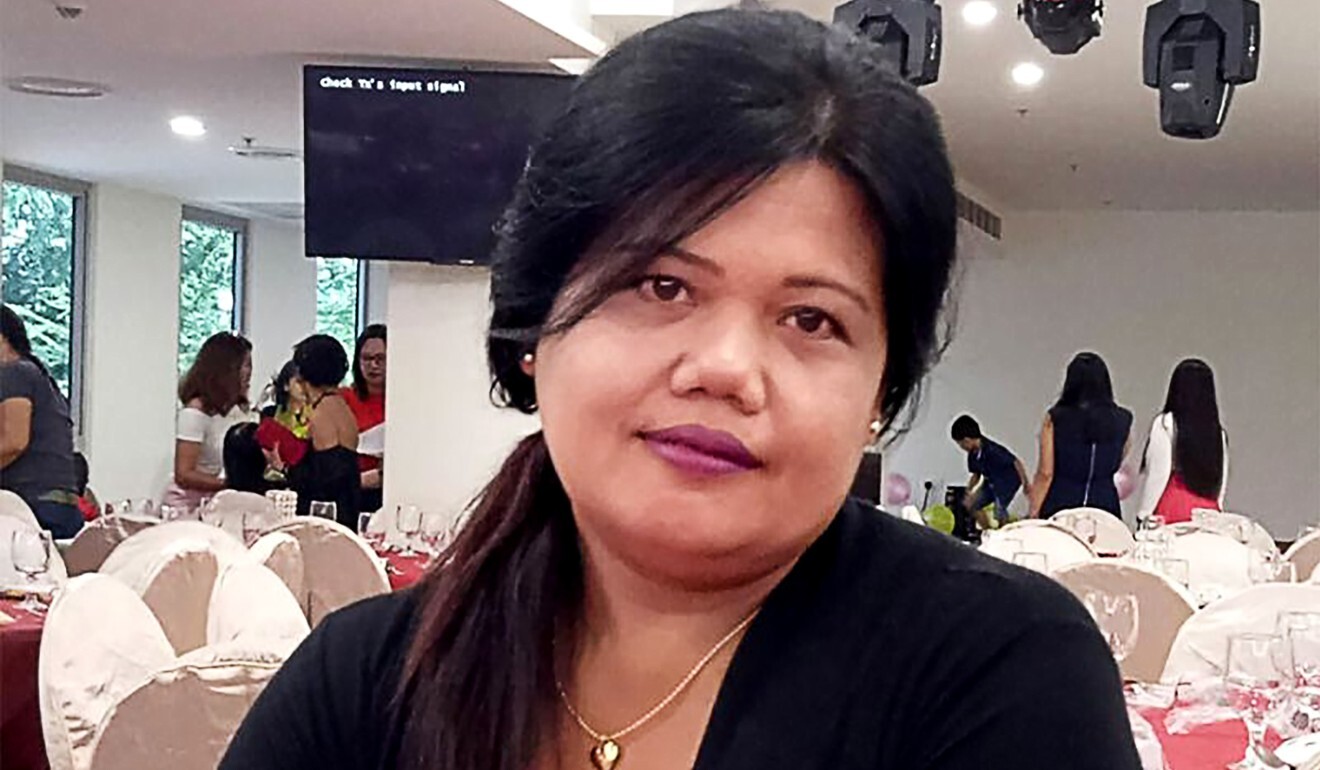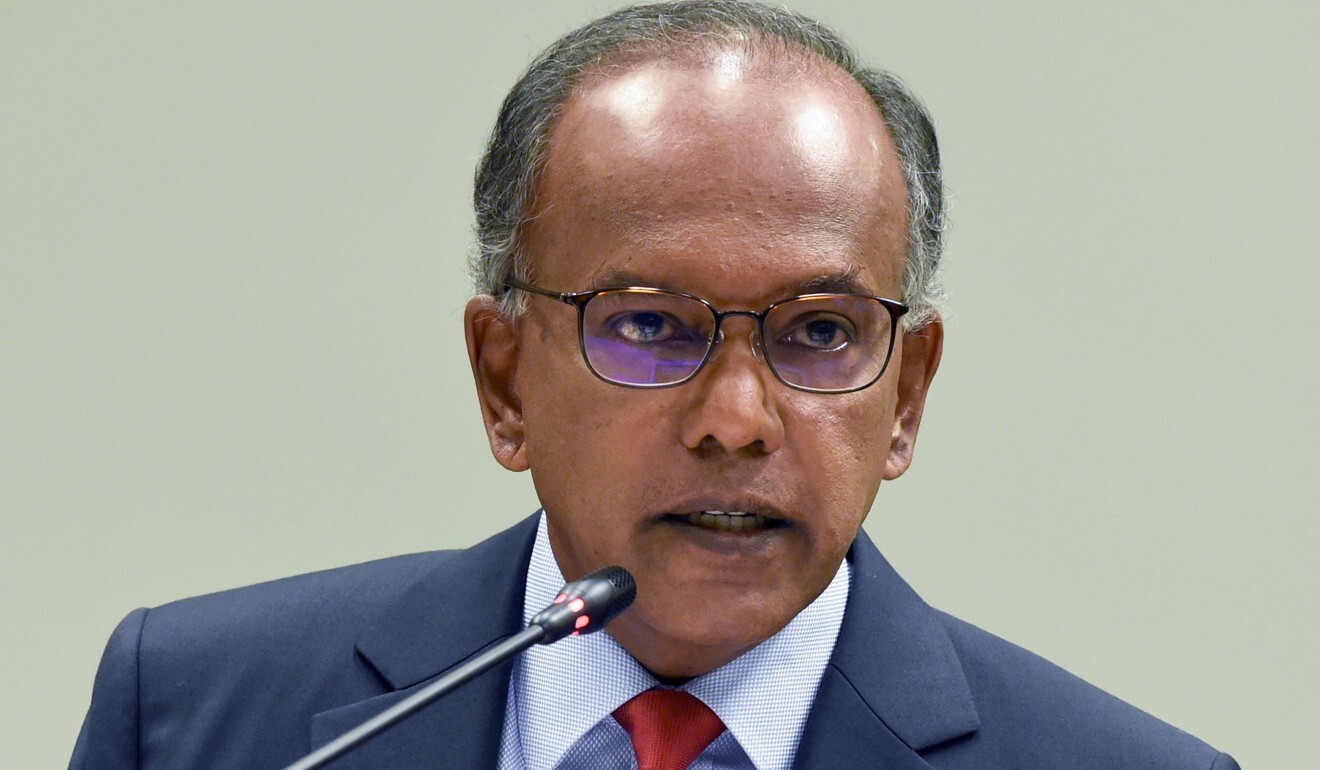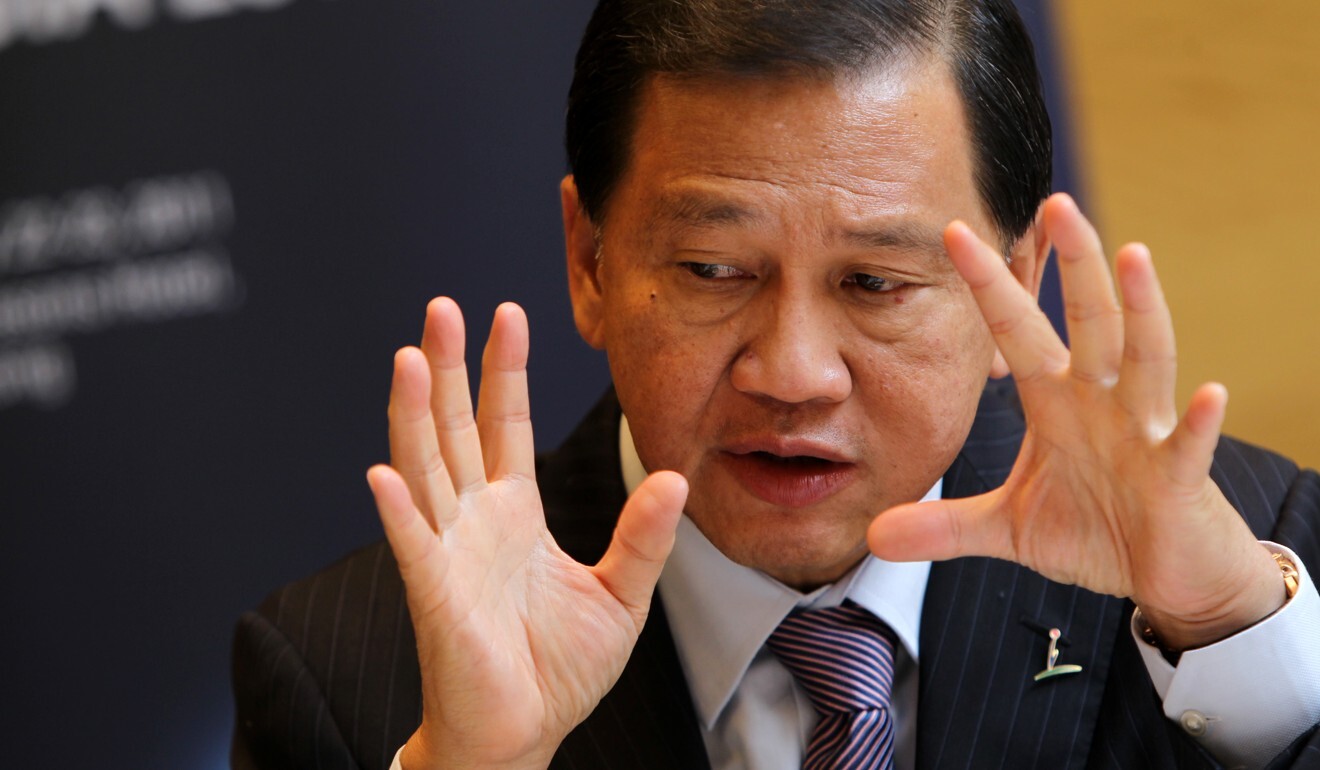
Singapore justice system not skewed in favour of elites, government inquiry finds
- The review was launched following the September acquittal of Indonesian domestic worker Parti Liyani, who battled for four years to clear her name
- Her influential ex-employer Liew Mun Leong and his family had accused her of theft after terminating her employment in 2016
While the high-profile case involving 46-year-old Parti Liyani had raised questions among citizens over whether there was “one law for the wealthy, socially connected, and another for the rest of society”, the review found otherwise, the minister told parliament.
Still, additional inquiries are under way – with the police officers involved in the case currently under internal investigation and prosecutors who sought a conviction against Parti facing separate disciplinary proceedings into whether they acted improperly.

Parti, who had filed complaints against the police and prosecutors, said in a statement released hours before Shanmugam’s speech that she was “glad to know that the various agencies involved in my case have stated their intention to rectify the issues illustrated by my case”.
“I hope that the review based on my complaint may contribute to fully and transparently addressing the broader issues, and improving the fairness of the criminal justice system for all,” she added.
In a speech outlining the outcome of the review – keenly awaited since it was first announced in September – Shanmugam said the Singapore Police Force and the Attorney General’s Chambers faced no “improper nor any undue pressure” to act against Parti “at any stage of these investigations and proceedings”.

In his judgment, Justice Chan Seng Onn painted a scathing picture of Parti’s employer Liew Mun Leong and his family, saying there was reason to believe they had “improper motive” in accusing her of theft when they abruptly decided to terminate her employment in 2016.
Commentators and migrant activists have cited the case as the latest example of the difficulties that the disadvantaged groups face accessing justice in the city state, as opposed to those who are better-educated or can afford hefty legal fees.
Indonesian maid acquitted of stealing from Changi Airport boss
Following her indictment, Parti was barred from leaving the country but could not work – leaving her dependent on the independent migrant rights group HOME.
She had initially left Singapore following the Liews’ accusations against her in October 2016, but was arrested when she returned to the country months later, and in August 2017 was charged in court with four counts of theft of items worth some S$34,000 (US$24,870).
The State Courts, Singapore’s court of first instance, convicted and sentenced Parti to 26 months in jail in March last year. Represented by pro-bono lawyer Anil Balchandani, she was out on bail until her acquittal in September.
In his speech, Shanmugam directly addressed questions about whether Liew’s stature had influenced the case. “There was no influence by Liew Mun Leong,” the minister said, adding that police and public prosecutors had proceeded with the case as they would have any other theft case.

Apart from the additional probes into the conduct of the investigating police officer and the prosecutors, Shanmugam also revealed during his speech that Liew’s son Karl Liew was under investigation for perjury.
Following Shanmugam’s speech, the police said in a statement that Karl Liew would be charged on Thursday with giving false information to a civil servant and giving false evidence.
The minister said there had been “inconsistencies” in the statements tendered by various parties in the case, including Parti.
Karl Liew was unable to identify clothes he had accused Parti of stealing and had claimed branded wallets found in her possession were gifts from his family, despite none of the family members being able to recall giving him such items.
He had also said bedsheets found in Parti’s possession were bought from the upmarket British retailer Habitat but they were later found to bear labels from Ikea.
Changi Airport chairman resigns after acquittal of former domestic worker
Teh took his own life before he was to stand trial for allegedly accepting bribes worth S$1 million and his case remains the highest profile corruption scandal in the country.
The country’s intolerance for corruption and influence peddling were akin to “religious commandments”, Shanmugam said. While he did not discuss the pending investigation into the prosecutors – commissioned by the country’s chief justice Sundaresh Menon following Parti’s complaint – the minister said the “prosecution’s overarching role is to ensure that justice is done, and not to win the case at all costs”.
Piecemeal inquiries, while helpful in informing us on what went wrong in each institution, are manifestly inadequate
Sylvia Lim, chairwoman of the opposition Workers’ Party, has put forward a separate private member’s motion on the case, calling on the government to recognise and remedy shortcomings in the justice system “in order to enhance justice for all, regardless of means or social status, including facilitating a review of the justice system”.
That motion and the minister’s speech were debated on Wednesday, with Shanmugam fielding questions on whether a broader commission of inquiry was necessary to examine the issues surrounding the case. Pritam Singh, the Workers’ Party chief and parliamentary opposition leader, queried Shanmugam on Parti’s statement released earlier in the day.
The minister said some of the issues she raised were addressed in his speech. He suggested the former domestic worker was not behind the statement, which was published on the HOME website.
“I think, Mr Singh, that we all know that Miss Liyani is not doing this,” Shanmugam said. ”We know why this is being done. But police will deal with it, and will respond in due course. And I‘m not suggesting that anybody in this House is responsible for it.”
Earlier, the Ministry of Manpower said it was reviewing punishments for employers who illegally deploy their domestic workers.
Singapore domestic worker case spotlights issue of illegal deployment
Parti lodged her complaint about illegal deployment to the younger Liew’s home and office after she was charged with the theft. Karl Liew and his mother were later issued an advisory over Parti’s complaint.
Individual reviews conducted by the ministry, the Attorney General’s Chambers and the police have drawn criticism from commentators, who said the seriousness of the case required a “holistic” review.
In a commentary published on September 22, Singapore Management University Law Professor Eugene Tan said the “piecemeal inquiries, while helpful in informing us on what went wrong in each institution, are manifestly inadequate in identifying whether there were systemic issues or failures at play”.
“These include whether there is a subconscious bias in favour of public institutions such as the belief that the police went about their duties diligently or that the prosecutors prosecuted without fear or favour,” he wrote in the article on the Today Online portal.

